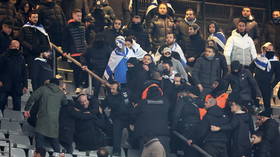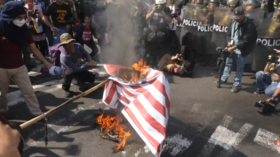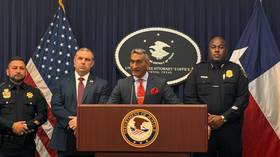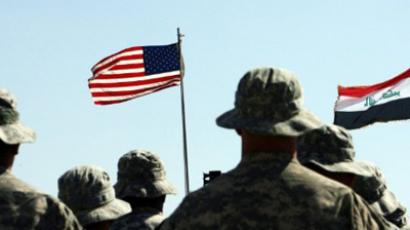‘US did far more damage than good in Iraq’
Barack Obama has ordered US troops out of Iraq by the end of the year in the belief that Baghdad can take care of itself. But this decision has nothing to do with whether Bagdad can “fend for itself” Phyllis Bennis from the IPS told RT.
“It was all about the political pressure on both president Obama and PM Malaki. For the US this is a huge victory for the anti-war movement, which has successfully transformed the discourse in this country from a very supportive population of this war to a population that now over 75 per cent say this war is not worth fighting and the troops should be brought home immediately. That has been the case for some years now. And it has taken this long to transform that discourse change into policy change,” explained Bennis, director of the New Internationalism Project at the Institute for Policy Studies.The Iraqi government wanted more troops to stay and help provide security. This however does not represent the interests of the Iraqi people, says Bennis.“The parliament of Iraq, which is far more representative, has made it clear they do not need any US troops left in Iraq. The government of PM Malaki, which is afraid they “may fall” without the backing of US troops, has warned the troops to stay, as did the Obama administration,” she maintained. “They both are stuck with anti-war populations that want the war to end. For Malaki the issue was he could not get away with providing immunity to the US troops in the case of war crimes. For Obama, he could not get the Iraqis to say ‘Yes. We will give you immunity in the case of war crimes.’ Without immunity they were not prepared to stay because the Pentagon knows that their troops commit too many war crimes in these situations,” she added.Thus neither president has exactly what he wanted, but for both it is exactly what is needed. “The US troops occupying Iraq will not be able to bring safety and security to Iraqis. Their withdrawal is not going to bring safety and security by itself, but it sets the stage for the Iraqi solution to the ongoing crisis rather than a solution that was imposed from outside,” Bennis pointed out.The 39,000 troops were not needed in Iraq in the first place, Bennis told RT. They did far more damage in Iraq than good in Iraq. And it will be the same in Libya if the US decides to redirect them there.“The lesson from Iraq to Libya is ‘Don’t occupy the country, don’t send US and NATO troops in the guise of training and support, that makes everything worse.’ The US government does not have a history of learning historical lessons very well. I hope they will change that,” she concluded.
“What is really going in Iraq and what has been going in Iraq is the extreme damage to the country largely due to our own invasion and occupation,” agrees Karen Kwiatkowski, a retired US Air Force lieutenant-colonel. “I think we will actually hear more about civilian deaths, but I am not convinced that they are not going on right now,” she told RT. “This is definitely the right time [to leave],” she concluded.














